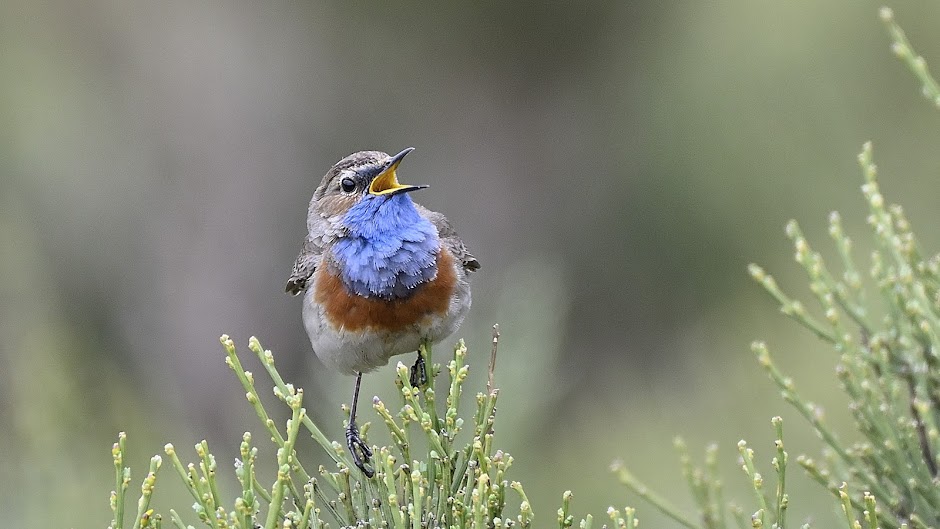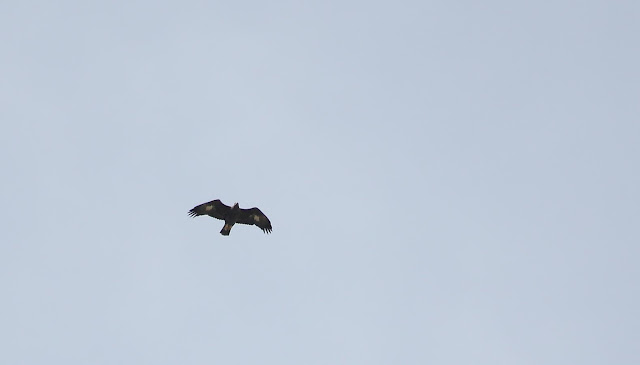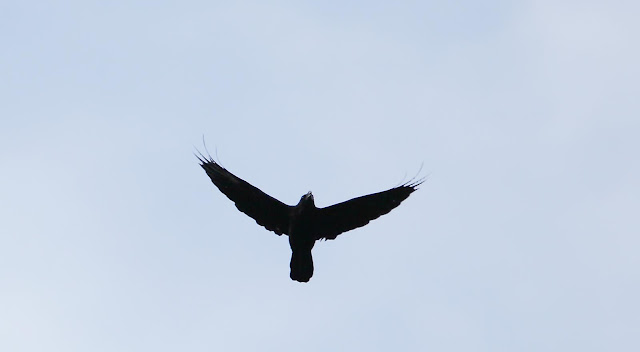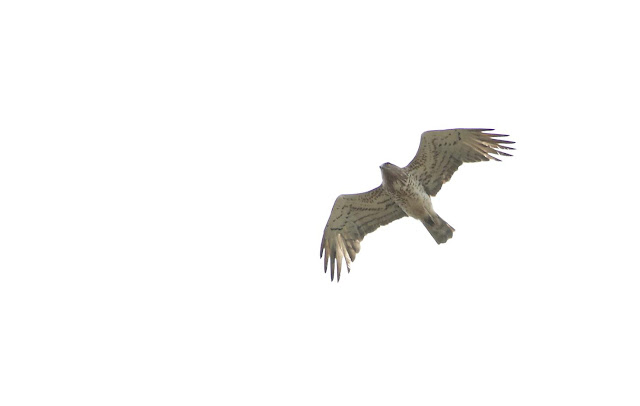En el siguiente enlace podéis ver nuestros próximos viajes nacionales y al extranjero. Espero que os gusten.
Próximos viajes. Next trips.
Hola una vez más.
Hello again.
Esta vez os muestro un viaje de tres días para ver Osos Pardos (Ursus arctos) y hacer algunas excursiones por la zona. Para tener éxito escogí la zona del Parque Natural de Somiedo aunque nunca se sabe si se podrán observar.
This time I show you a trip of three days to watch Brown Bears and do some tours around the area. To be successful I chose the area of the Natural Park of Somiedo although you never know if they will show up.
La población del Oso Pardo (Ursus arctos)en la cordillera Cantábrica se divide en dos subpoblaciones distintas. Una subpoblación occidental y otra oriental. La primera de ellas es la que contiene más especímenes (censo del 2016) llegando a ser de más de 200 ejemplares y la oriental con más de 40. En la actualidad esta especie se está recuperando lentamente. Datos de la Fundación Oso Pardo.
The population of the Brown Bear in the Cantabrian Mountain Range is divided into two distinct subpopulations. A western and an eastern one. The first of them is the one that contains more specimens (census of 2016) arriving to be of more than 200 speciemnts and the Eastern one with more than 40. At the moment this species is recovering slowly. Data of the Fundación Oso Pardo.
El tiempo fue bastante bueno pues solo nos cayeron unas pocas gotas el segundo día y el primero y el tercero fueron muy soleados.
The weather was pretty good as only a few drops fell on the second day and the first and third were very sunny.
Primero una pequeña muestra de la belleza de este lugar. Aunque no se vea al Oso merece la pena visitar este paraje.
First a small sample of the beauty of this place. Even if you do not see the Bear it is worth visiting it.
Día primero:
First day:
Después de recoger a los clientes nos dirigimos a Asturias y en el camino, en Ávila, vimos posada este águila imperial ibérica (Aquila
adalberti). que pena que el sol estuviese detrás suyo. Luego por la provincia de Valladolid nos pasó otra por encima de la furgoneta.
After picking up the customers we headed to Asturias and on the way, in Avila, we saw this Spanish Imperial Eagle. What a pity that the sun was behind it. Then through the province of Valladolid another one passed above the van.
Después de llegar a Asturias nos dimos una magnífico paseo antes de acudir a la espera del Oso. En a foto un escribano montesino (Emberiza
cia).
After arriving in Asturias we had a wonderful walk before going to the waiting of the Bear. In a photo aRock
Bunting.
Este joven de águila real (Aquila
chrysaetos) estaba siendo hostigada por varias aves. En este caso se trata de un cernícalo vulgar (Falco
tinnunculus).
This juvenile of Golden Eagle was being harassed by several Birds. In this case it is a Common Kestrel.
Y luego por un grupo de chovas piquirrojas (Pyrrhocorax
pyrrhocorax).
And then by a group of Red-billed
Choughs.
Al final optó por irse.
In the end it chose to leave.
Una pareja de águilas reales (Aquila chrysaetos).
A pair of Golden Eagles.
Y un poco más tarde otro adulto.
And a little later another adult.
Carbonero palustre (Poecile
palustris).
Marsh Tit.
Acentor común (Prunella
modularis).
Dunnock.
Joven de petirrojo europeo (Erithacus
rubecula).
Juvenile of European Robin.
Adulto.
Adult.
Busardo ratonero (Buteo buteo).
Common
Buzzard.
Y una grata sorpresa un lirón gris (Glis glis). Hacía muchos años que no veía uno.
And a great surprise a Edible Dormouse. I had not seen one for many years.
Precioso mamífero.
Beautiful Mammal.
Un rebeco cantábrico (Rupicapra parva).
A Cantabrian Chamois.
Por desgracias en la espera de esta primera tarde ningún oso apareció por lo que cuando anocheció nos fuimos al hotel.
Unfortunately on the wait for this first afternoon no bear appeared so when nightfall we went to the hotel.
Segundo día:
Second Day:
En esta segunda espera si fue exitosa pues disfrutamos con la presencia de este oso pardo (Ursus arctos). Son momentos inolvidables cada vez que veo uno.
In this second wait we where rewarded because it appeared this Brown Bear. Moments like this are unforgetable.
Un momentazo.
A great time.
Después de la espera nos fuimos a hacer una excursión hasta la Braña de Mumián.
After the wait we went to make an excursion to the Braña de Mumián.
Rebecos cantábricos (Rupicaprava parva).
Cantabrian Chamois.
Cuervo grande (Corvus
corax).
Common
Raven.
Vimos varias tarabilla norteñas (Saxicola
rubetra).
We saw several Whinchats.
Carbonero garrapinos (Periparus
ater).
Coal Tit.
Azor común (Accipiter
gentilis).
Northern
Goshawk.
Cernícalo vulgar (Falco
tinnunculus).
Common
Kestrel.
Chovas piquirrojas (Pyrrhocorax
pyrrhocorax).
Red-billed
Choughs.
Culebrera europea (Circaetus
gallicus).
Short-toed
Eagle.
Pardillo común (Carduelis
cannabina).
Common Linnet.
Acentor común (Prunella
modularis).
Dunnock.
Un jóven.
A juvenile.
Joven de petirrojo europeo (Erithacus
rubecula).
Juvenile of European Robin.
Colirrojo tizón (Phoenicurus
ochruros).
Black
Redstart.
Tarabilla europea hembra (Saxicola rubicola).
Female of Common
Stonechat.
Macho.
Male.
Y otra culebrera europea (Circaetus gallicus). Se trata de un joven que pasó más cerca.
And another Short-toed Eagle. It is a juvenile who came closer.
Preciosa ave.
Beautiful Bird.
Busardo ratonero (Buteo buteo).
Common
Buzzard.
Buitre leonado (Gyps
fulvus).
Griffon
Vulture.
Zorzal Común (Turdus
philomelos).
Song
Thrush.
Y al caer la tarde volvimos a ver otro oso pardo (Ursus arctos).
And at dusk we saw another Brown Bear.
Tuvimos muchas suerte.
We were very lucky.
A lo lejos pudimos ver algunas ciervas (Cervus elaphus).
In the distance we could see some Hinds.
Tercer día.
Third day.
Aunque ya habíamos visto dos osos pardos (Ursus arctos) decidimos volver a hacer otra espera por la mañana para ver si volvíamos a ver más.
Although we had already seen two Brown Bearswe decided to make another morning wait to see if we could watch some more.
En el río había un mirlo acuático europeo (Cinclus
cinclus). Una pena que no había salido aun el sol y no había casi luz pues estaba de lo más confiado.
In the river there was a European European Dipper. A pity that the sun had not come out and there was almost no light because he was very tame.
Otra vez volvimos a tener suerte.
We were lucky again.
Que maravilla.
Awesome.
Estos zorros comunes (Vulpes vulpes) estuvieron un buen rato jugando.
These Red Foxes had a good time playing.
Rebeco cantábrico (Rupicaprava parva).
Cantabrian Chamois.
Y un visitante inesperado fue este quebrantahuesos (Gypaetus
barbatus) que debe ser uno de los ejemplados liberados en Picos de Europa.
And an unexpected visitor was this Lammergeier which must be one of the specimens released in Picos de Europa.
Después del avistamiento y antes de regresar a Madrid nos fuimos de excursión a visitar otro de los bellos lugares de este Parque Natural. En la foto un cernícalo vulgar (Falco
tinnunculus).
After the sighting and before returning to Madrid we went on an excursion to visit another of the beautiful places of this Natural Park. Photographed a Common Kestrel.
Busardo ratonero (Buteo buteo).
Common
Buzzard.
Mosquitero musical (Phylloscopus
trochilus).
Willow
Warbler.
Bisbita alpino (Anthus
spinoletta).
Water
Pipit.
Joven de roquero rojo (Monticola
saxatilis).
Juvenile of Rock
Thrush.
Gavilán común (Accipiter
nisus).
Eurasian
Sparrowhawk.
Y con estas imágenes de otra culebrera europea (Circaetus
gallicus) me despido de todos vosotros hasta la próxima entrada.
And with these pics of another Short-toed
Eagle I say goodbye to all of you until the next post.





















































































No hay comentarios:
Publicar un comentario